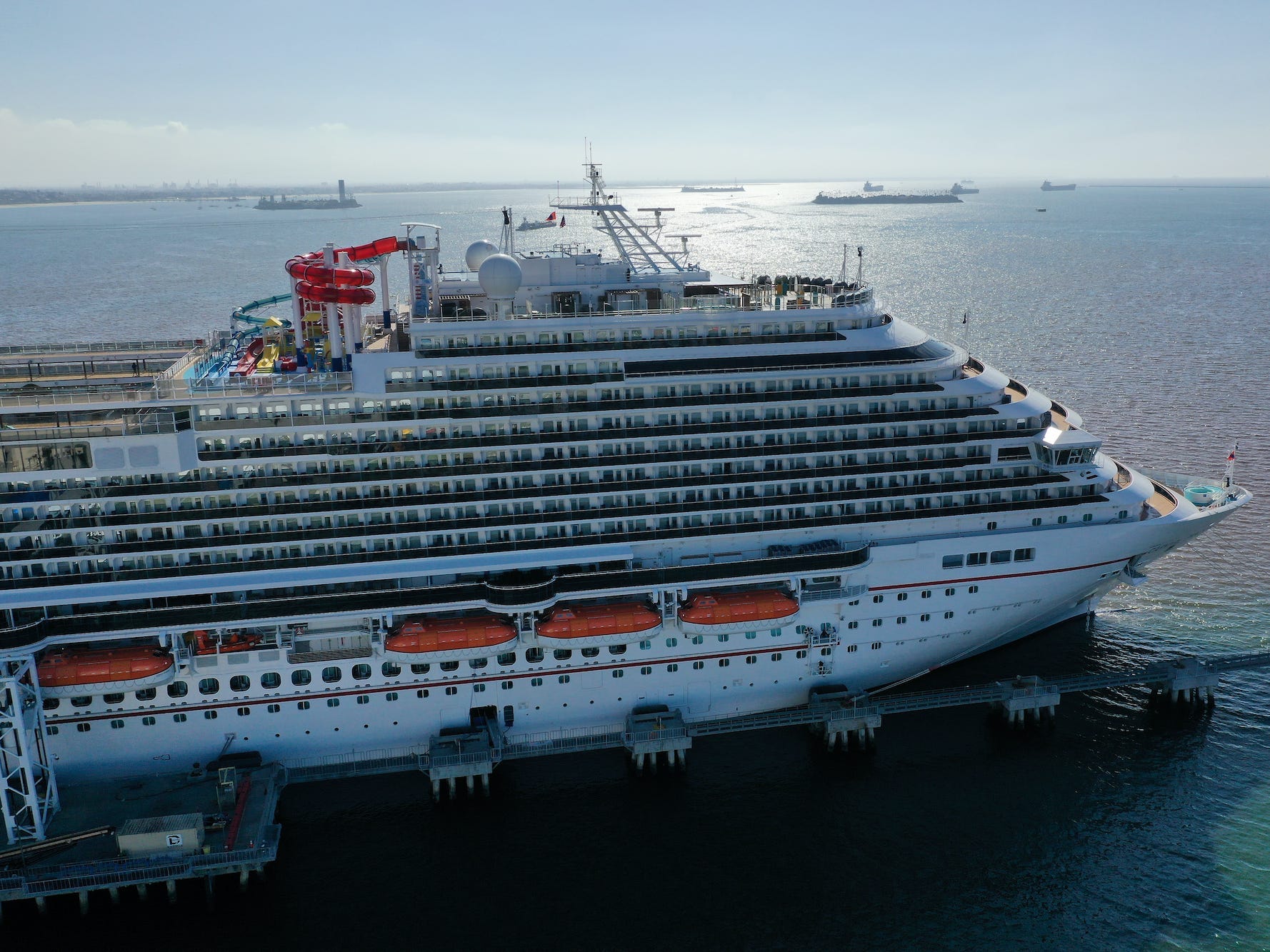
Lucy Nicholson/Reuters
- A company wants to turn a cruise ship into a floating “Crypto Cruise Ship” office for now remote techies, “digital nomads,” YouTube influencers, startups, and more.
- Ocean Builders is in the final stages of obtaining a ship from Carnival Cruises that would eventually house over 2,000 people in its 777 cabins, priced between $25,000 and $50,000, per a report from The Telegraph.
- Guests would have access to fitness classes, a swimming pool, and a 5,000-square-foot theatre. Move-ins could start start as soon as January 2021.
- The unconventional office setup represents a burgeoning industry that is catering to remote work as people are free to live where they wish while offices remain shuttered.
- According to the company’s website, the ship will use “the newest cruise industry health and safety standards” such as onboard testing and “preventative doses of hydroxychloroquine,” the anti-malaria drug that studies have found to be ineffective against treating the coronavirus.
- Visit Business Insider’s homepage for more stories.
A company wants to take a Carnival cruise ship, rendered useless by the COVID-19 pandemic, and turn it into a floating office for tech workers as the industry shifts to remote work.
The project, first reported by The Telegraph’s Margi Murphy, is dubbed “The Crypto Cruise Ship” and is designed as an entrepreneurial incubator for crypto enthusiasts, digital nomads, YouTube influencers, startups, and other like-minded folks. Guests will have access to yoga and fitness classes, meditation services, a swimming pool, a running track, and more. There’s also a 5,000-square-foot theatre for workshops, conventions, movies, and live performances.
“Just like the man-made island of Venice Italy became an important center of commerce in the old world, we believe this could be the start of a modern floating Venice of the Americas and an important hub of innovation in the world,” reads the website.
Ocean Builders founder Chad Elwartowski told The Telegraph that he is in the final stages of obtaining a ship from Carnival Cruises for an undisclosed sum that will host over 2,000 people in its 777 cabins. If the acquisition goes through, the company will start auctioning the first batch of 100 rooms on November. 5, which will range in price from $25,000 and $50,000. It’s unclear what those rates cover and how long guests would be renting the rooms.
Ocean Builders did not immediately respond to Business Insider’s request for comment.
Bidding for the rooms will close on November 28, and guests will be able to move in starting in January when the ship, the MS Satoshi, will be anchored off the coast of Panama.
According to the website, all businesses onboard will accept payment in the form of bitcoin and USD, as well as other forms of payment.
Cruise ships have made headlines since the start of the pandemic as they were proven to be Petri dishes for the spread of the coronavirus disease, with vessels like the Diamond Princess ending up with hundreds of cases. The pandemic has battered the cruise industry, prompting many lines — including the biggest, Carnival Corp. — to resort to layoffs and offloading their fleets of vessels.
Ocean Builders said on its website that it believes a "properly run cruise ship can be the healthiest and safest place in the world to live" and intends to use the "newest cruise industry health and safety standards" to create a safe environment onboard. That will include onboard health testings, medical facilities, a pharmacy, and doses of hydroxychloroquine, the anti-malaria drug that has been incorrectly touted by President Trump as a cure for the coronavirus disease. Medical experts have advised against its use, and FDA studies have shown that it has no effect on improving symptoms or someone's chances of survival after being infected with the disease.
"If you are concerned about catching the flu you have the option to wearing a mask, social distancing, or taking preventative doses of hydroxychloroquine," the cruise's website states, seemingly referring to the coronavirus disease as "the flu."
The company's endeavor to create an unconventional work setup represents a growing industry that is catering to a mass shift to remote work during the COVID-19 pandemic. Many have been freed from having to live near now-closed corporate offices and have subsequently been deprived of the usual perks that come with working in the region, such as free snacks and in-house massages.
Google has announced that employees will be working remotely through summer 2021, and some firms like Dropbox, Twitter, and Slack have told employees that they may work remotely permanently if they choose. Facebook has said that those who wish to leave the pricey San Francisco Bay Area for more affordable locales will likely have to take a pay cut.
As for turning to floating accommodations for live-and-work purposes, this isn't Silicon Valley's first time to entertain such a notion. Ex-Googler Patri Friedman, founder of the nonprofit think tank Seasteading Institute, told The Telegraph in a June interview that he's seen an increase in interest in seasteads, or floating cities that operate independently of existing governments.
Friedman also once drafted designs for a would-be floating settlement in the Bay Area that would be "Burning Man meets Silicon Valley meets the water." The idea inspired BlueSeed, a startup that set out to launch a so-called "Googleplex of the seas" in 2013 as Business Insider reported in 2011.
The company sought to skirt US regulations by building vessels on international waters near the Bay Area that would serve as incubators for tech workers who were unable to obtain US work visas. It was backed by billionaire investor Peter Thiel but never panned out.

